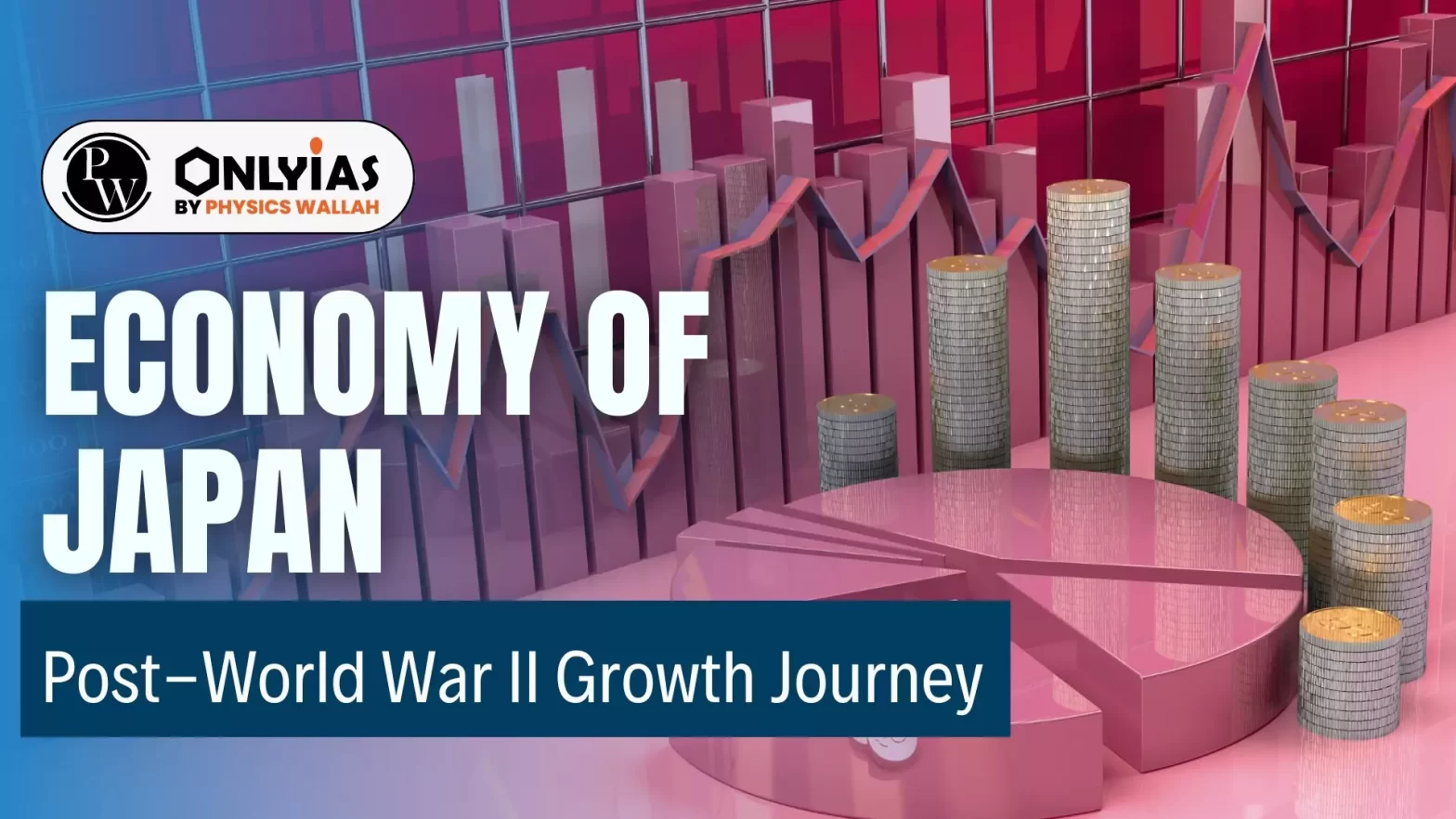Context
Recently, Japan’s Central Bank raised interest rates for the first time in 17 years and scrapped its negative rates policy.
| Relevancy for Prelims: Policy Rates, Negative Interest Rate, Inflation, Deflation and Plaza Accord.
Relevancy for Mains: Increase of Interest Rates by Japan- Need and Potential Impacts. |
Economy of Japan: Historical Background
- Significant Achievement: Japan suffered devastating losses during World War II, including two nuclear attacks. Despite starting from zero, Japan made a remarkable economic comeback, becoming the world’s second-largest economy by 1968.
- Until the 1980s, Japan was contributing about 10% of the World.
- Downfall: In 1985, the Plaza Accord was held among the G-5 nations—France, Germany, the US, the UK, and Japan. It paved the way for Japan’s “Lost Decade (1991-2001)” of sluggish growth and deflation.
- Stagnation: Economy of Japan stagnated for 30 years, known as the “Lost Decade”. GDP growth stalled, salaries remained flat and deflation occurred.
- Declining Profits: Companies faced declining profits and layoffs. Japan maintained an ultra-loose monetary policy from 2007 until 2024.
Aim of the Plaza Accord
- To manipulate exchange rates by depreciating the U.S. dollar with relative to the Japanese yen and the German Deutsche.
- This Accord led to the yen and Deutsch mark dramatically increasing in value relative to the dollar.
Impact of Plaza Accord:
- Yen Appreciation: As the yen appreciated, Japan’s exports declined sharply.
- GDP Fall: Japan’s GDP fell due to reduced exports.
- Asset Bubble: Low interest rates led to a bubble in real estate and stocks, which burst in 1989.
- Stagnation: Japan entered a 30-year vicious cycle of economic stagnation.
|
About Negative Interest Rates of Japan:
- Zero Interest Policy: To counter stagnation, Japan adopted a zero interest rate policy with an aim to expand its GDP and growth.
- Negative Rates: In 2016, Japan implemented negative interest rates to encourage spending and investment over saving.
- Limited Success: However, the negative interest rate policy had limited success. Germany recently overtook Japan as the world’s third-largest economy.
Potential Impacts
- Benefits: The step of Japan’s Central Bank to raise interest rates would help in escaping deflation, encouraging investment, generating jobs and attracting foreign investment.
- Risks: The raise in interest rates by Japan’s Central Bank could face a challenge of high debt-to-GDP ratio (already is 263%), increased fiscal burden, reduced bank profitability and negative economic impacts.
Conclusion
As per experts, while this is Japan’s first interest rate hike in 17 years, it still keeps rates stuck around zero as a fragile economic recovery forces the central bank to go slow in any further rise in borrowing costs.
Also Read: India Japan Relations
| Prelims PYQ (2022):
Which one of the following statements best reflects the issue with Senkaku Islands, sometimes mentioned in the news?
(a) It is generally believed that they are artificial islands made by a country around South China Sea.
(b) China and Japan engage in maritime disputes over these islands in East China Sea.
(c) A permanent American military base has been set up there to help Taiwan to increase its defence capabilities.
(d) Through International Court of Justice declared them as no man’s land, some South-East Asian countries claim them.
Ans: (b) |
![]() 27 Mar 2024
27 Mar 2024
